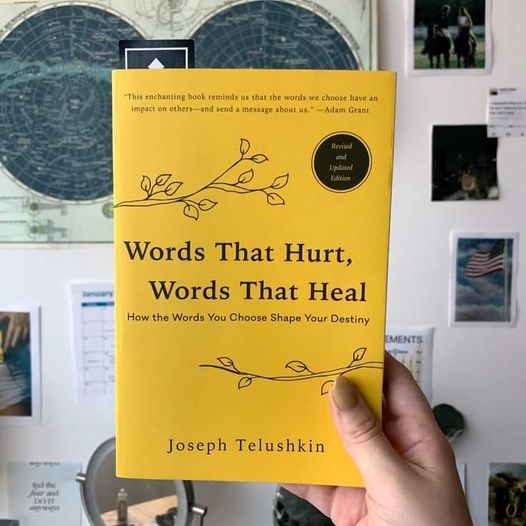It seems like you’re asking for an article or information about “words that hurt” and “words that heal.” I’ll provide a brief overview:
Words That Hurt vs. Words That Heal
Words that hurt: These are the types of statements or language that can cause emotional harm, distress, or discomfort to others. They can linger in the mind long after they are spoken, potentially leading to lasting negative effects. Examples include:
- Insults or name-calling
- Criticism without constructive feedback
- Dismissive or condescending remarks
- Sarcasm or mockery
- Harmful stereotypes or prejudices
These words can lower self-esteem, cause pain, and even lead to long-term emotional or psychological damage. In many cases, hurtful words stem from frustration, anger, or misunderstanding.
Words that heal: On the other hand, words that heal are those that offer comfort, validation, and encouragement. They can inspire hope, restore confidence, and create a sense of safety or understanding. Examples include:
- Words of affirmation (“You matter,” “You’re doing great,” “I believe in you”)
- Offering empathy and listening actively
- Providing encouragement in difficult times
- Offering sincere apologies and taking responsibility
- Giving compliments that are heartfelt and genuine
Healing words build connections, foster emotional resilience, and encourage a sense of belonging. They have the power to uplift and support individuals who may be struggling, creating an environment of trust and compassion.
The Impact of Language:
Words are incredibly powerful. Whether positive or negative, the language we use affects both ourselves and others. It’s important to be mindful of how we communicate, as our words can either tear down or build up.
How to Use Words to Heal:
- Be empathetic: Understand where the other person is coming from and show compassion.
- Offer sincere compliments: Make sure they are genuine and tailored to the person.
- Use constructive feedback: When criticism is necessary, offer solutions or suggestions in a supportive way.
- Apologize when needed: If your words have hurt someone, a heartfelt apology can go a long way in healing the relationship.
- Be mindful of tone and body language: Sometimes, the way something is said matters more than the words themselves.
In summary, the words we choose can either hurt or heal, depending on our intentions, delivery, and understanding of their impact. By focusing on healing language, we can contribute to a more supportive and compassionate environment.
